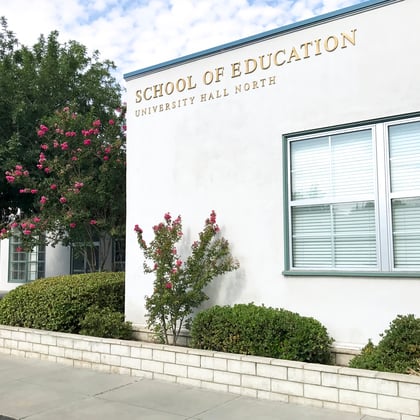Find us on campus

University Hall North

The Master of Arts in Education: School Counseling K-12 and College Emphasis program prepares students to provide counseling services in both Pre-K-12 and higher education settings, including community colleges and four-year colleges. The program curriculum meets all standards required for the Pupil Personnel Services (PPS) School Counseling Credential, as authorized by the California Commission on Teacher Credentialing (CTC).
With a curriculum rooted in educational justice, this University of Redlands program fuses counseling training with a deep understanding of how systemic factors influence the modern educational landscape. You will gain the preparation and experience needed to step into your career and counsel students across Pre-K-12 and higher education settings. Through hands-on fieldwork and a personalized curriculum, you'll develop the confidence and practical skills to navigate the complexities of both school and college counseling.
Fieldwork plays a vital role in helping students gain hands-on experience, build professional networks, and develop a strong professional identity. The School of Education maintains a robust connection with the community and is always seeking to expand partnerships.
If you're interested in collaborating with the School of Education as a community partner or seeking opportunities to complete fieldwork in a specific school, district, or community, we encourage you to reach out. Please contact the Office of Licensures and Credentialing for more information.
The coursework and field experience segments of the program are delivered in a prescribed sequence. Pathways are recommended for timely program completion. Learn more by viewing this pathway resource.
To view specific classes, program requirements, and coursework information, visit the current university catalog.
Priority 1 Deadline: January 15
Priority 2 Deadline: June 1

University Hall North


The Counseling and Human Services department is under the School of Education. Guided by the ideals of equity and access, we prepare students to provide socioculturally adaptive and responsive services in educational, non-profit, and government settings. Our faculty are dedicated to training excellent practitioners who graduate prepared to address the needs of diverse clients and students. Learn more about all our programs, student resources, and faculty.
Get in touch with our admissions team.